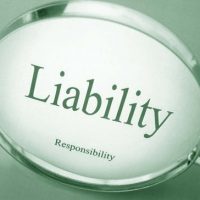Were You Injured by an “Open and Obvious” Hazard?

Florida law requires that property owners keep their premises reasonably safe for people they invite onto the property. They should also warn visitors of a hazard that is hidden so that people can protect themselves. When property owners neglect these duties, they are often liable for any accident.
However, some hazards are “open and obvious,” which complicates the legal analysis. If you were hurt on someone’s property, please contact Earnhart Law today to speak with a Delray Beach premises liability attorney.
The Duty to Warn Visitors of Hidden Defects
Some hazards are hidden or difficult to see. Others, though visible, are only something a person would notice if they were carefully reviewing where they put their feet. For example, the treads on a staircase could be so worn that they are slick. However, people do not look down at the stairs with a magnifying glass to check the tread before going downstairs, and the law does not require that they do.
The same is true if you slip on some water that has spilled in a grocery store aisle. Normal people are not aggressively scrutinizing the floor when shopping, so a small puddle of water might go unnoticed until you slip on it.
Because many defects are not easily observable, a property owner has a duty to warn visitors of them. For example, if a store decides to mop the floors, they should put up some signs notifying customers of that fact.
No Need to Warn when a Hazard is Open and Obvious
Nevertheless, some hazards are hard to miss. This is where the “open and obvious” doctrine comes it. It states that a property owner does not need to warn visitors when a hazard is easy to see or otherwise known.
Some examples include a giant hole in the ground, brick borders on sidewalks, and electrical wires. Other hazards might be known because the victim already encountered them. For example, someone could trip on a step that is taller than others. However, if the victim had used the staircase minutes before, then they should know of the hazard.
Can You Still Bring a Claim for Obvious Hazards?
If a hazard was open and obvious, that does not necessarily mean that the victim cannot sue. There are some situations where a lawsuit is still possible.
For example, the victim might be a child. The fact that an object looks dangerous to an adult does not mean a child would understand what they are encountering. In fact, many dangerous items are attractive nuisances that might draw a child to the property in the first place.
In other cases, an owner should appreciate that victims could be injured even if the object’s dangerousness is obvious. The “open and obvious” doctrine is not a license for owners to avoid keeping their premises reasonably safe. Instead, it only relieves landlords of their duty to warn for certain defects. When a defect is easy to remedy, a property owner should fix it promptly.
Contact Us Today
Earnhart Law has helped many victims obtain the compensation that they need. Please call us to schedule a free consultation with one of our lawyers today, 561-265-2220.
https://www.delrayinjuryattorneys.com/floridas-recreational-use-statute/
